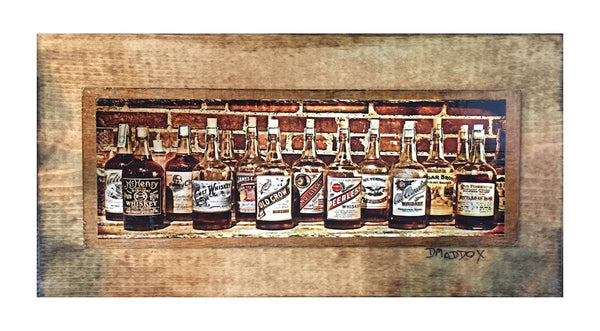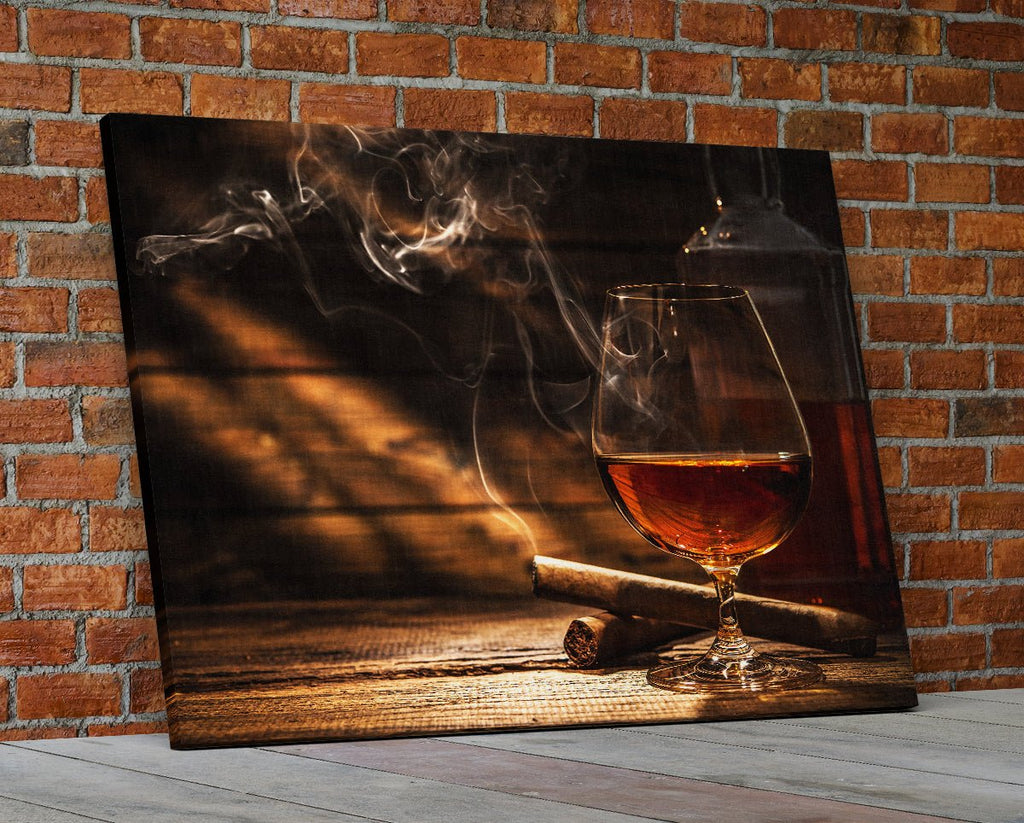Bourbon Art in Contemporary Culture: Where Tradition Meets Advancement
Bourbon Art in Contemporary Culture: Where Tradition Meets Advancement
Blog Article
Recording the Essence of Whiskey Art Via Unique Aesthetic Representations and Styles
The art of scotch prolongs past the liquid itself, showing up with a variety of visual depictions that envelop its storied heritage and craftsmanship. What continues to be to be discovered is just how these advancing designs reflect not just the bourbon itself yet also the altering landscape of artistic analysis. Realism Art.
The Background of Bourbon Art

As bourbon production spread, so too did the wish to raise its experience via art. From the detailed engravings on very early barrels to the sophisticated tags of modern containers, each component reflects an one-of-a-kind imaginative vision, working as an aesthetic narrative of the whiskey's heritage.
In the 18th and 19th centuries, the increase of the commercial change better enhanced scotch art, causing ingenious packaging and advertising that caught customer attention. Designers and musicians began trying out with looks, imbuing whiskey-related images with symbolic significances that shared notions of community, craftsmanship, and practice.
Today, bourbon art remains to evolve, blending standard techniques with contemporary art kinds. Whiskey Art. This recurring discussion in between the spirit and its aesthetic depiction underscores the long-lasting bond in between whiskey and society, enriching the total experience for enthusiasts worldwide
Iconic Container Designs
While numerous elements add to the attraction of scotch, famous bottle styles play a crucial function in shaping customer understanding and boosting the general experience. The visual discussion of whiskey bottles is not just a visual factor to consider; it works as a bridge between the consumer and the item, stimulating emotions and setting assumptions.
Distinct forms, products, and closures can boost a bourbon brand's identity, making it instantly well-known on jampacked racks. The classic Glenfiddich bottle, with its stylish tapered shape, communicates a feeling of tradition and craftsmanship, while the bold, modern-day layout of the Balvenie container shows technology and class. Furthermore, using colored glass or one-of-a-kind structures can suggest the high quality and character of the scotch within.
Renowned styles typically incorporate elements of cultural heritage, signifying the brand's background and connection to its roots. Brands like Jack Daniel's use a straightforward, robust design that resonates with its American whiskey heritage. Ultimately, the impact of container layout expands past mere performance; it envelops the significance of the brand name, inviting consumers to indulge and discover in the rich tapestry of whiskey society.
Label Artwork and Branding
Bottle layouts frequently establish the phase for what consumers can anticipate, but label art work and branding play an equally significant function in interacting a bourbon's identity. The label works as the initial point of call between the item and the customer, enveloping the essence of the bourbon within its aesthetic components.
Effective label art work integrates typography, images, and shade to develop a narrative that reverberates with the brand name's heritage and target audience. For example, a label featuring elaborate illustrations and classic typefaces may evoke a feeling of custom and workmanship, interesting lovers. In comparison, vibrant colors and modern-day style components might draw in a younger demographic seeking advancement and enjoyment.


Photography and Visual Narration
Capturing the essence of scotch through digital photography and visual narration is an art kind that boosts the brand name experience. This tool transcends mere item depiction, diving right into the complex narratives that border each bottle. By utilizing engaging imagery, digital photographers can evoke emotions that resonate with consumers, inevitably creating a much deeper connection to the bourbon brand name.
Visual narration in whiskey digital photography frequently utilizes rich appearances, lights, and composition to highlight the unique attributes of the spirit. The interplay of light and shadow can emphasize the brownish-yellow tones of bourbon, while the choice of history elements-- such as rustic barrels or elegant glasses-- can strengthen the brand's heritage or browse around here way of living associations.
Furthermore, recording the ritualistic elements of scotch intake, from the pouring to the tasting, invites visitors into a sensory experience, permitting them to visualize the tastes and fragrances that wait for. Each photograph not just showcases the product however also narrates of craftsmanship, custom, and the minutes that scotch can improve - Whiskey Art. Hence, photography comes to be an effective tool in articulating the identity of bourbon brand names, positioning them within the broader cultural landscape
Emerging Fads in Bourbon Art
The advancement of scotch art is significantly formed by contemporary patterns that reflect wider societal shifts and consumer choices. This shift not just highlights the relevance of sustainability but additionally enhances the narrative bordering whiskey manufacturing.
Furthermore, digital art has actually surged in appeal, permitting cutting-edge depictions of bourbon. Artists are leveraging innovation Recommended Reading to craft immersive experiences, such as increased truth setups that engage audiences and offer a much deeper understanding of scotch's cultural relevance. This trend also encompasses social media sites systems, where visually striking content amasses interest and cultivates area amongst lovers.
Moreover, cooperations in between whiskey brand names and artists are becoming more widespread. These partnerships yield limited-edition packaging styles and unique artworks that celebrate both the craftsmanship of bourbon and the creativity of artists. As scotch art proceeds to progress, these emerging fads will undoubtedly shape its future, cultivating a dynamic intersection of culture, sustainability, and technology within the whiskey area.
Conclusion
In conclusion, the art of bourbon encompasses a varied range of visual depictions that reflect its abundant heritage and craftsmanship. From legendary container layouts and complex tag artwork to engaging digital photography, each component adds to a broader narrative that improves the consumer's experience. As arising fads, such as digital art and sustainability, proceed to shape this imaginative landscape, the multifaceted identity of whiskey continues to be a sustaining source of additional hints social link and exploration.

In final thought, the art of bourbon includes a varied range of visual depictions that reflect its abundant heritage and workmanship.
Report this page